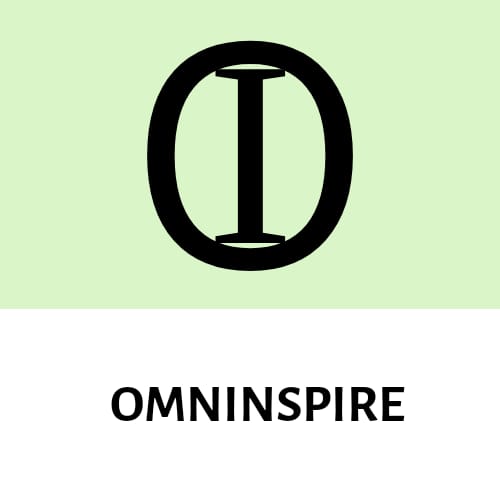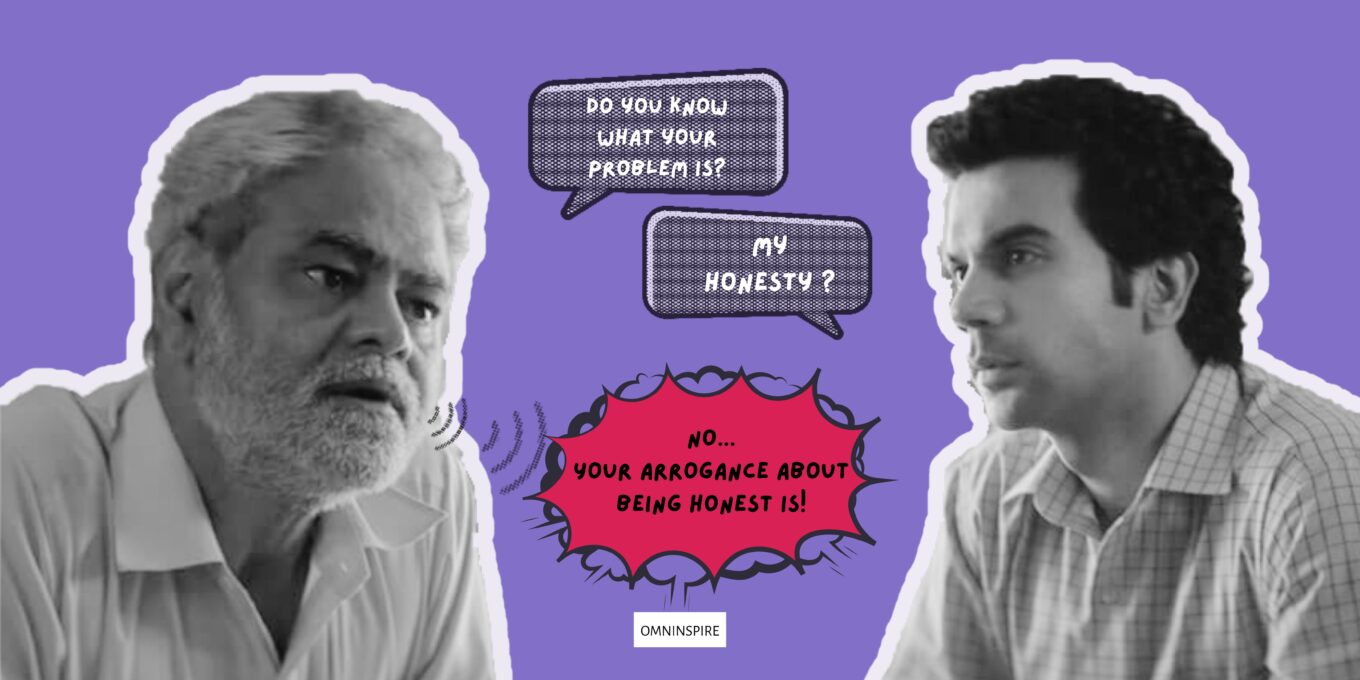Picture Source: ‘Newton’ Movie, Drishyam Films Pvt Ltd.,
Edited By : OMNINSPIRE
In today’s fast-paced world, where self-promotion often takes precedence, the underrated virtue of humility shines brightly as a beacon of strength and authenticity. Embracing humility is not about diminishing oneself; rather, it’s about recognizing our inherent worth while remaining open to growth and connection with others. Before delving into the myriad benefits of humility, it’s essential to understand its essence.
What is Humility
Humility is not about self-deprecation or minimizing one’s worth; rather, it’s a profound recognition of our strengths and limitations. At its core, humility involves an openness to learning and growth, a willingness to acknowledge our imperfections, and a deep sense of gratitude for the contributions of others. It is the foundation upon which authentic self-confidence and empathy are built.
How Humility is Different from Modesty
While humility and modesty are often used interchangeably, they encompass distinct concepts. Modesty typically involves downplaying one’s achievements or attributes to avoid drawing attention or causing offense. In contrast, humility goes beyond surface-level modesty to encompass a genuine recognition of our interconnectedness and fallibility. While modesty may focus on external appearances, humility penetrates to the core of our being, shaping our attitudes, behaviors, and relationships.
Here, we’ll explore the multifaceted benefits of humility, from personal development to nurturing thriving relationships in all spheres of life.
The Personal Impact of Humility
Scenario 1: Facing a Challenge
Imagine encountering a significant setback at work or in personal endeavors. Instead of reacting with defensiveness or blame, a humble individual acknowledges their role in the situation and seeks constructive solutions. By embracing humility, they recognize the opportunity for growth and resilience, viewing challenges as learning experiences rather than insurmountable obstacles.
Scenario 2: Receiving Feedback
Consider a scenario where someone receives critical feedback on their performance. Instead of becoming defensive or dismissing the feedback, a humble individual listens attentively, acknowledges areas for improvement, and expresses gratitude for the opportunity to grow. Their humility enables them to approach feedback with openness and a willingness to learn, fostering personal development and professional growth.
At its core, humility fosters self-awareness and a grounded sense of identity. By acknowledging our strengths and limitations with humility, we cultivate a growth mindset that fuels personal development. Transitioning from a mindset of ego-driven competition to one of humble self-improvement enables us to navigate life’s challenges with grace and resilience.
Also Read: How To Transform Your Dreams into Achievable Goals
Humility’s Role in Building Strong Relationships
Scenario 1: Resolving Conflict
Picture a disagreement between friends or colleagues. Instead of escalating tensions with stubbornness or a desire to be proven right, individuals approach the conflict with humility. They actively listen to each other’s perspectives, express empathy and understanding, and work collaboratively to find mutually beneficial solutions. Through empathy driven conversations, they strengthen their bond and build trust in their relationship.
Scenario 2: Expressing Gratitude
Imagine a scenario where someone receives recognition or praise for their achievements. Rather than seeking more accolades or downplaying their accomplishments, they respond with humility and gratitude. They acknowledge the contributions of others, recognizing that their success is often the result of collective effort and support. This humble approach fosters appreciation and strengthens interpersonal connections.
In relationships, humility serves as a bridge for empathy, understanding, and mutual respect. When we approach interactions with humility, we prioritize active listening and genuine empathy over the need to be right or validated. This fosters deeper connections and promotes harmonious relationships built on trust and collaboration.
Also Read : Dark Empaths: Are You Friends with One?
Humility in the Workplace: Fostering a Culture of Success
Scenario 1: Leadership Approach
Consider a workplace led by a humble leader. Instead of asserting authority through intimidation or arrogance, the leader cultivates a culture of trust, collaboration, and innovation. They empower team members to voice their ideas and opinions, value diverse perspectives, and lead by example with humility and integrity. This leadership style fosters employee engagement, productivity, and overall success.
Scenario 2: Team Dynamics
Imagine a team of humble individuals who prioritize collaboration and mutual support. Rather than competing for recognition or advancement, team members work together towards common goals, leveraging each other’s strengths and expertise. Their humility fosters a culture of accountability, respect, and shared success, leading to higher morale and performance within the team.
In professional settings, being humble is not a sign of weakness but a hallmark of effective leadership and teamwork. Leaders who lead with humility inspire trust and loyalty among their team members, fostering a culture of innovation and collaboration. By embracing humility, individuals contribute to a positive work environment where everyone feels valued and empowered to thrive.
Also Read: Feeling the heat of ‘Occupational Burnout’?
Raising Children with Humility: Nurturing Future Leaders
Scenario 1: Teaching Resilience
Picture a parent guiding their child through a challenging situation, such as a disappointing academic performance or a setback in extracurricular activities. Instead of focusing solely on outcomes or achievements, the parent emphasizes the importance of resilience and growth. They encourage the child to embrace mistakes as opportunities for learning, fostering humility and perseverance in the face of adversity.
Scenario 2: Modeling Empathy
Consider a parent interacting with their child after witnessing an act of kindness or generosity. Rather than seeking recognition or praise, the parent humbly acknowledges the importance of empathy and compassion. They discuss the value of considering others’ perspectives and supporting those in need, instilling humility and empathy as core values in their child’s upbringing.
As parents, cultivating humility in our children is one of the greatest gifts we can offer. Teaching children to be humble while approaching life instills values of kindness, empathy, and resilience. By modeling humility in our own actions and interactions, we equip our children with the tools they need to navigate the complexities of the world with integrity and compassion.
Also Read: Parental Jealousy : Are You Jealous Of Your Child?
The Impact on Mental and Emotional Well-Being
Scenario 1: Coping with Stress
Imagine an individual facing high levels of stress or pressure in their personal or professional life. Instead of succumbing to feelings of overwhelm or inadequacy, they approach challenges with humility and self-compassion. They recognize their limitations and seek support from others when needed, prioritizing their mental and emotional well-being over perfectionism or unrealistic expectations.
Scenario 2: Fostering Inner Peace
Consider someone navigating the complexities of modern life, inundated with messages of success and achievement. Rather than chasing external validation or materialistic pursuits, they cultivate a sense of inner peace and contentment through humility. They find fulfillment in meaningful connections, simple pleasures, and acts of kindness, recognizing that true happiness lies in embracing life by being humble and with gratitude.
Beyond its interpersonal benefits, humility also plays a crucial role in promoting mental and emotional health. Research has shown that individuals who exhibit humility experience lower levels of stress, anxiety, and depression. By letting go of the need for constant validation and comparison, we free ourselves from the burdens of unrealistic expectations and cultivate a greater sense of inner peace and contentment.
Also Read: Feelings Vs Emotions – Can You Tell The Difference?
Humility is not a passive virtue but a powerful force for personal growth, thriving relationships, and overall well-being. By harnessing the power of being humble in our lives, we unlock the potential for greater fulfillment, resilience, and connection with ourselves and others. Let us embrace humility as a guiding principle on our journey towards a more compassionate and enriching existence.

